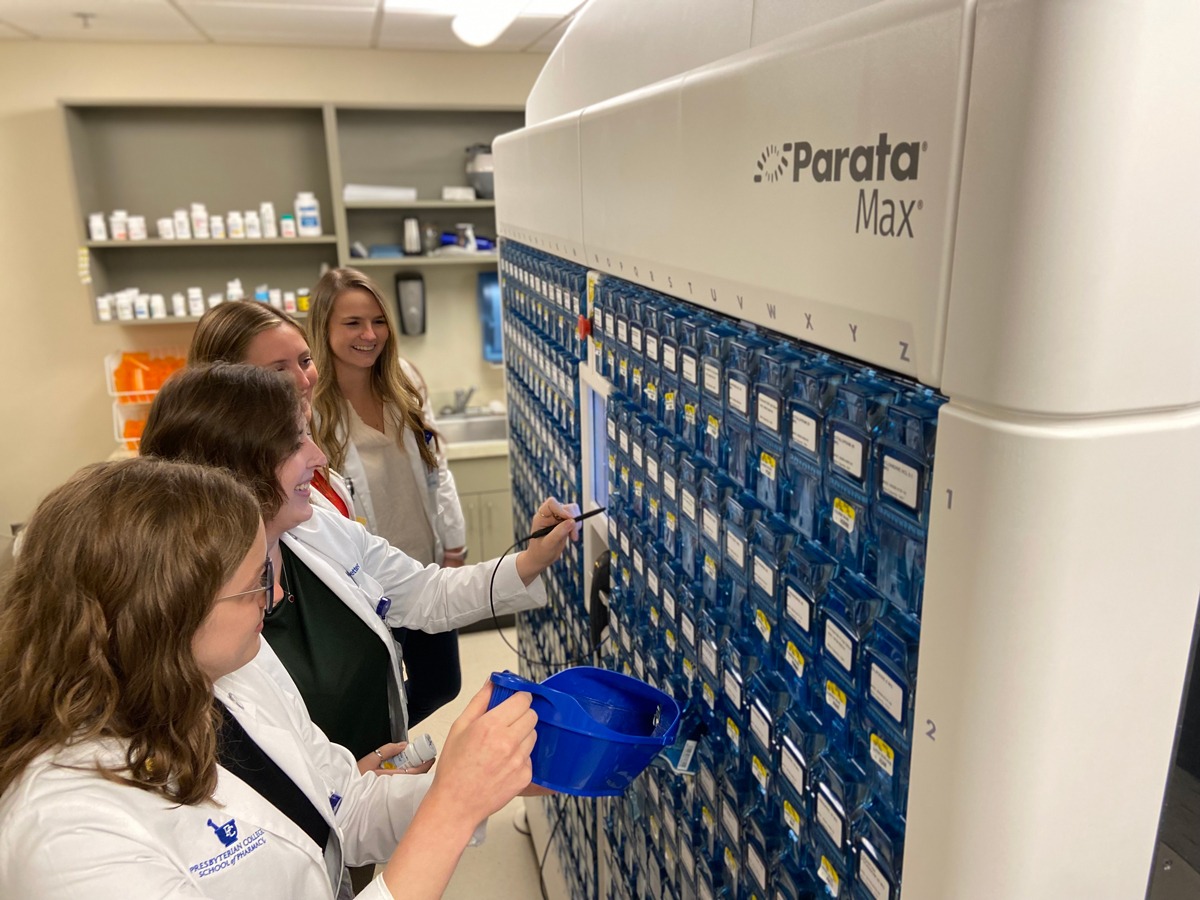PC School of Pharmacy Receives Generous Grant
 A generous $90,000 grant from the BlueCross® BlueShield® of South Carolina Foundation has allowed the Presbyterian College School of Pharmacy’s community care pharmacy to make a needed change in “personnel.”
A generous $90,000 grant from the BlueCross® BlueShield® of South Carolina Foundation has allowed the Presbyterian College School of Pharmacy’s community care pharmacy to make a needed change in “personnel.”
With the grant, the PC Community Pharmacy replaced an obsolete dispensing robot with a refurbished Parata Max model that helps them meet the needs of hundreds of local patients.
Patients whose needs are considerable.
More than 20 percent of Laurens County residents and 30 percent of Clinton residents live below the poverty level. As an outreach to patients served by the county’s Good Shepherd Free Medical Clinic, the Community Care Pharmacy fills prescriptions at no cost to patients whose income is 200 percent below the poverty level and who cannot afford care because they have no government assistance or private insurance.
“We are pleased to partner with Presbyterian College on this initiative to equip today’s students with the skills they need to provide critical health care to uninsured and economically disadvantaged patients in Laurens County now and into the future,” said Erika Kirby, the executive director of the BlueCross® Blue Shield® of South Carolina Foundation.
A dispensing robot gives pharmacy staff considerably more time to spend with medically underserved patients, many of whom need individual attention to help them understand and manage their medications. The robot also provides volunteer students from the School of Pharmacy the opportunity to work with a piece of equipment many of them will use in their future practices.
The robot also reduces manual dispensing errors and fills prescriptions 60 percent faster than a human being. It counts medications, places them in vials and caps and labels the vials for patients.
Assistant professor of laboratory education Nancy Taylor, who is also the Community Care Pharmacy’s pharmacist-in-charge, honored her new “colleague” with a nickname – “Maxine.”
“With Tish Clayton, our pharmacy technician, and our students, we’ve created an enjoyable atmosphere to work in,” she said. “We just think it’s fun to call the robot something other than ‘the robot.’”
The main thing, Taylor said, is serving patients.
“We were surprised and grateful that this will help us in our service to the community,” she said. “That is what it boils down to – helping us serve our community better.”
